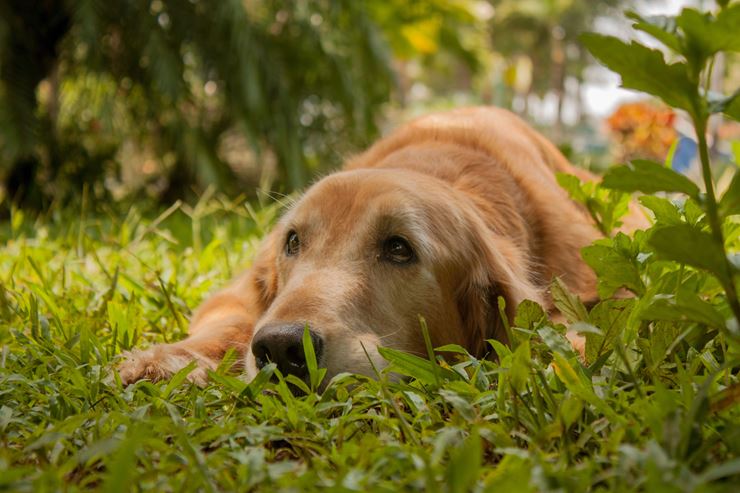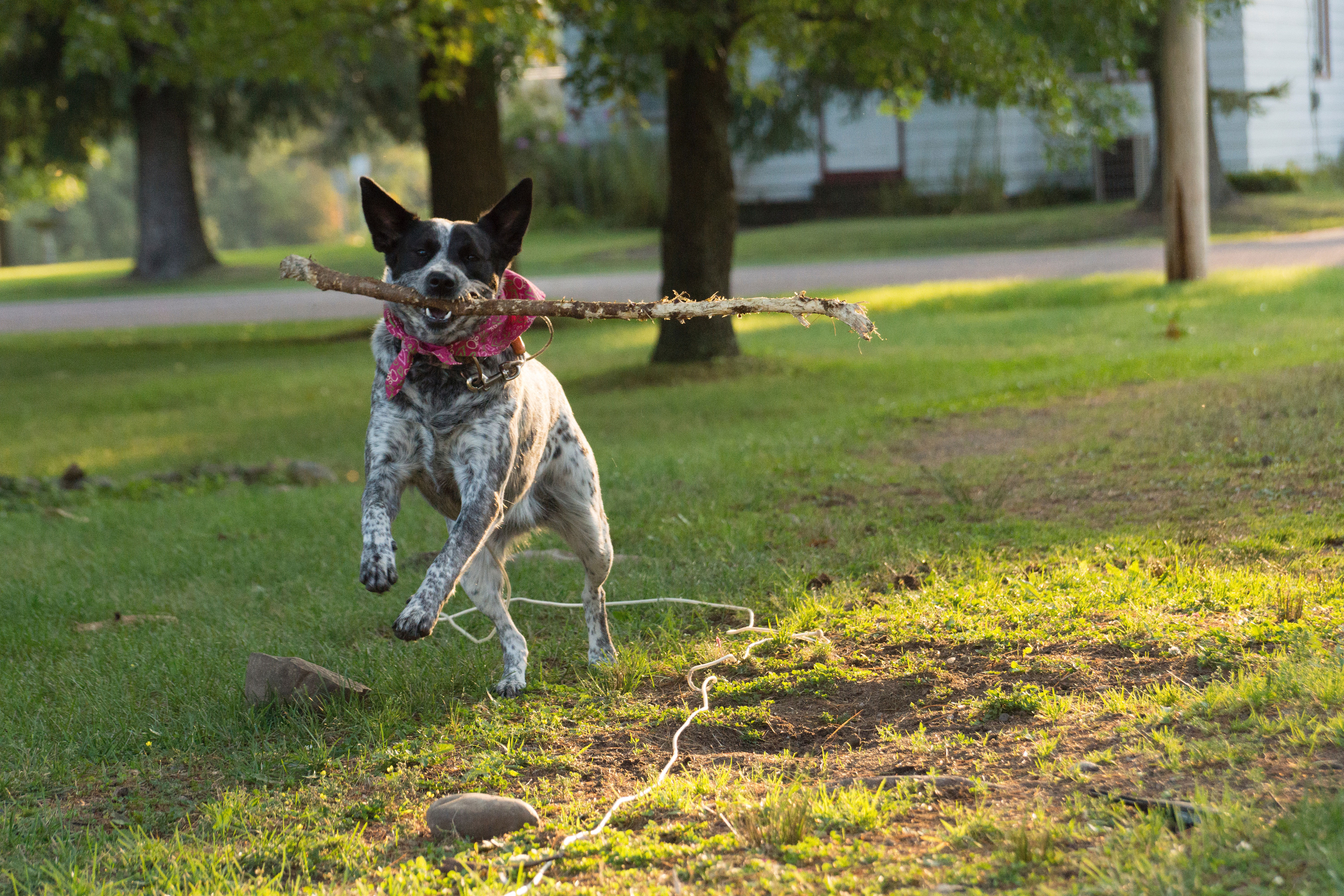
8 Ways to Ditch Your Dog’s Digging Habits for Good
The sun is shining, and it seems like the perfect day to step outside and enjoy your morning coffee on the patio. After you’ve brewed your first pot, you pour a cup for yourself and head out, sit down, and take a sip, only to immediately spit it out right after you see the freshly dug holes in your garden. What on earth happened?
Are vermin paying late-night visits to your backyard? Perhaps, but that’s not the case this time. In truth, the culprit actually resides in your home. You should have seen it coming. After all, you’ve known for a long time that your canine best friend loves to dig.
But why do dogs love digging?
Anxious Dogs Are More Predisposed
Your dog might be plowing through your petunias because of stress. If he has already displayed symptoms of anxiety, digging might be his stress buster. A good indicator is if your dog begins intentionally digging up holes whenever you leave the house. Going through significant changes like moving to a new home or the family adopting a new pet can put him a little on edge.
Sometimes It’s Seasonal
Some animals create burrows because they do not feel comfortable with the weather. One way to tell if your dog’s digging is caused by the change in season is his action after harrowing through the soil. Does he lie down inside the hole? If yes, then your ball of fluff is probably experiencing temperature-related discomfort.
It’s All Instinctive
Digging cannot be categorized as misbehavior because it is part of a dog's nature. To understand why dogs take pleasure in digging up holes in your backyard, take a good look at how their ancestors behave. Wolves, foxes, and other members of the Canidae family have learned to dig up holes for numerous reasons. Some dig holes to stay warm during frigid temperatures or cool down during the summer months. Others use the holes as dens for their offspring. Many four-legged animals also use hollows and burrows to store their food and prized possessions away from plain sight.
These explanations may seem puzzling, since your dog does not have to worry about his stash. You can feed him once, twice, or even thrice a day. He can go inside the house whenever he feels cold or hot. But, digging is instinctual. This behavior has been passed on over generations, so reprimanding your dog is unlikely to change it.
It may be in their nature, but that does not mean it is impossible to train dogs to stop digging. After all, dogs are intelligent and highly skilled. And, there are steps you can take to bury your dog’s digging habits.
What Can You Do to Stop Playful Pooches from Plowing the Lawn?
A lot! There are many ways to end this unwanted behavior, such as the following.
- Walk It off
Puppies are more inclined to this behavior, but adult dogs can demonstrate it, too. Your dog may be craving extracurricular activities because you have skipped out on daily walks for some time. Some breeds are more prone to digging due to their temperament. Dogs love attention and physical activities. For this reason, they may bore holes in the backyard or even scratch cemented floors to get out all of their pent-up energy. Instead of angrily asking your dog to stop, take him for a walk. Spend time with him by running, playing fetch, or swimming in a nearby lake. A simple walk can quench a dog’s thirst for adventure, work off his extra energy, or calm his anxiety. You can hit three birds with just one stone.
- Watch Over
At this stage, if you really want to get rid of this undesirable habit, you have to be there to observe and supervise your dog’s actions whenever he is out in the yard or at the park. Once you notice him sinking his paws into the ground, try to distract him with specific noises, such as clapping or whistling.
- Set a Digging Area
Natural behavior can be incredibly difficult to change. Your dog is programmed to dig. But, if you set an area for him to dig around in, it may be easier for both of you. Use plants, fences, or flags as borders to mark the area where your dog can freely dig. Spice up things in his makeshift playpen by adding toys and play sand as well.
- Use a Command
“Leave it” is one of the best commands you can try to teach your dog. However, this concept isn’t simple for a dog to grasp at first, so be patient when training your pooch, and be sure to reward your dog whenever he follows your command. You can also use it to keep your dog safe from potentially dangerous objects. 
- Be On the Lookout For Trespassers
Your dog may be searching the properties for other animals. Maybe he saw something happily burrowing underground one night. If this is the case, you must oust your squatter. Use safe and humane ways of removing these pests out of the premises. Avoid using methods that are poisonous or toxic. If it is enough to kill a burrowing animal, it is enough to endanger your dog.
- Give Shelter
Dogs may have wolves as their ancestors, but since they have long been domesticated, the ways of wildlife no longer suit them. Give your dog a place to stay in case the weather changes. Also, provide him plenty of water whenever he is outside.
- Know What’s Up
Your dog’s attempt to hide inside the holes he dug up may be due to threats and stress. If this is the case, you must identify the reason for his anxiety. While some factors are difficult to control, you can support your dog by helping him every step of the way. Slow transitions, increased quality time, and providing a safe space can stop your dog’s anxiety on its tracks.
- Keep Him Busy
Distraction can go a long way. Keep your dog’s paws busy by giving him other stuff to fidget about. Puzzle toys are a good idea because they can stimulate your dog’s mind. Other effective diversion tools are rope toys, tennis balls, and plushies. And dental chews can do more than preoccupy your dog; they can also boost his oral health.
Is There Hope For Your Dog?
The first steps can be a struggle. Determining the cause of the digging is challenging enough without factoring in canine nature. But once you have it all figured out, you have plenty of methods to choose from. You are bound to find one that will work. Dogs are smart. If you give them proper nourishment through a good diet, supplementation, and regular exercise, training them to halt this unwanted behavior will be a walk in the park.
Brian Larsen is the Co-Founder and CEO of RejuvaPet, LLC—the creator of RestoraPet and RestoraPet Hemp. He spent nearly 10 years developing these products to rehabilitate and protect pets at the cellular level, for a vastly improved quality of life.










